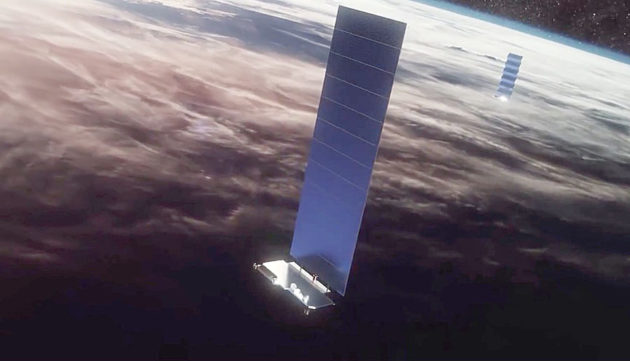SpaceX Expects to Lose around 80% of the Starlink Satellites Launched Earlier in February
2nd Mar 2022
On the 3rd of February, SpaceX launched another batch of 49 Starlink satellites from the Kennedy Space Center. However, the company announced that due to a massive geomagnetic storm, it’s expected that 80% of the newly-launched satellites will burn up instead of reaching orbit.
50% higher Atmospheric Drag Compared to Previous Rocket Launch
Sources within SpaceX stated that the geomagnetic storm impacting the satellites generated an atmospheric drag 50% higher than what was encountered before. Furthermore, these storms increase atmospheric density at lower altitudes and a warmer atmosphere altogether.
Resulting from the interaction of solar wind and the Earth’s magnetic field, geomagnetic storms are a frequent phenomenon. However, the intensity of the one right after the 49 satellites were launched made it impossible for them to take cover by flying edge-on.
No Collision Risk or Space Debris
Even though such a large number of satellites re-entering the atmosphere is no good news for SpaceX, at least there are absolutely no collision risks with other satellites. As they deorbit, the Starlink satellites will also disintegrate, so there’s no orbital debris created in the process. As a plus, no satellite parts will even hit the ground as they will burn up entirely during an atmospheric decline.
Even so, there are plenty of voices unhappy about the growing constellation of SpaceX Starlink satellites in orbit. Including the last rocket launch from Kennedy Space Center, SpaceX has a total of 2,000 Starlink satellites and received permission to take that number to 12,000. The concerns from astronomers focus on the satellites’ ability to blight the night sky and make it harder (if not impossible) to study the distant universe. The European Space Agency calls for coordinated action from the EU to ensure that the SpaceX satellites don’t prevent other nations from launching their own satellites.






Thank you for your comment! It will be visible on the site after moderation.